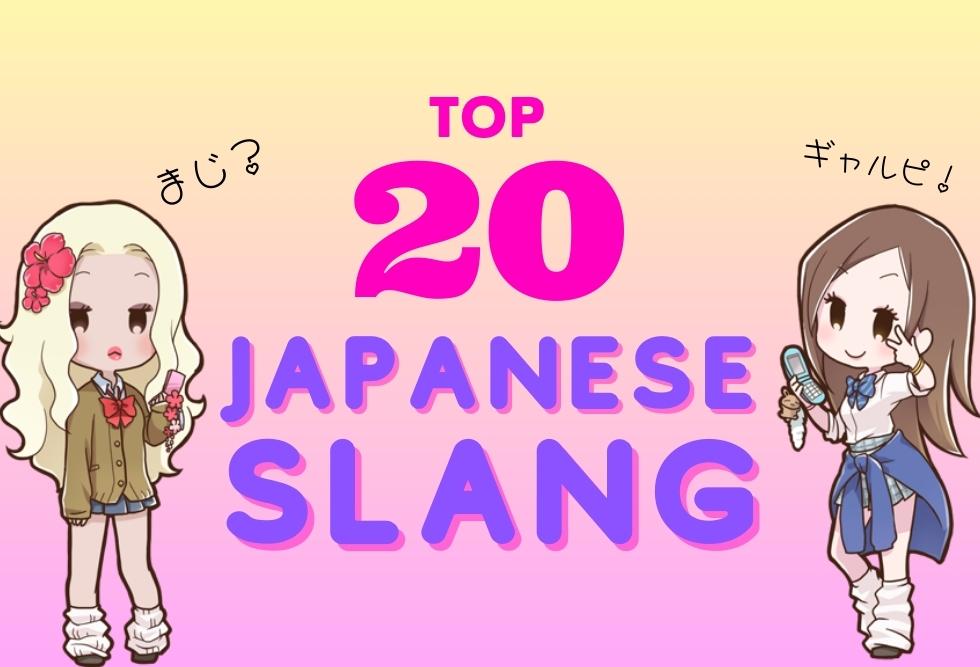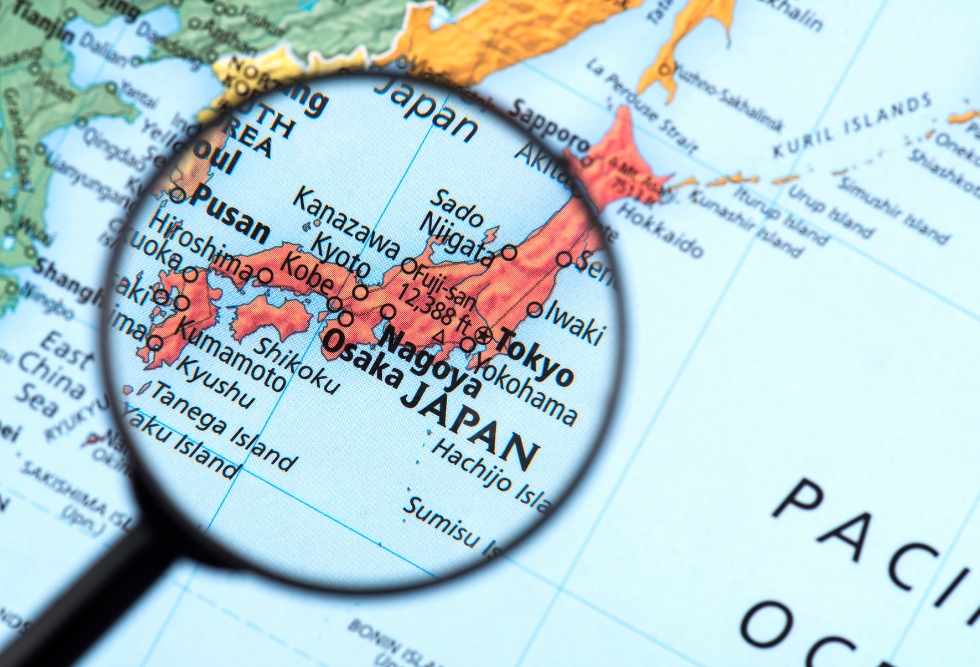Are you planning a trip to Japan or studying Japanese and want to impress the locals with your language skills?
Then learning some Japanese slang words is a must! Not only will it help you sound like a native speaker, but it will also help you understand Japanese pop culture and everyday conversation.
In this article, I’ll introduce you to 20 essential Japanese slang words that you should learn by 2023.
I’ll also cover the latest slang of 2022 and 2023, so you can stay up-to-date with the latest trends.
1. やばい (Yabai)
This slang word is used to express something that is dangerous, risky, or sketchy. It can also be used to describe something that is really cool or amazing. It’s a versatile word that can be used in many situations.
Example: この映画、やばい! (Kono eiga, yabai!) – This movie is amazing!
2. まじ (Maji)
This word is short for “本気” (honki), which means “serious”. It can be used to express surprise, disbelief, or emphasis.
Example: まじで? (Maji de?) – Are you serious?
Recently, “まじで?” is shortened to “ま?”
3. はまる (Hamaru)
This slang word means “to get hooked” or “to be into something”. It’s often used to describe a hobby or activity that someone is really interested in.
Example: このゲーム、はまってる! (Kono geemu, hamatteru!) – I’m hooked on this game!
4. まったりする (Mattari suru)
This slang word means “to chill” or “to relax”. It’s often used to describe a laid-back atmosphere or a slow-paced lifestyle.
Example: 今日は家でまったりする。 (Kyou wa ie de mattari suru.) – I’m going to chill at home today.
5. ガチ (Gachi)
This slang word means “serious” or “for real”. It’s often used in sports or competitive situations.
Example: 今日の試合、ガチでやろう! (Kyou no shiai, gachi de yarou!) – Let’s play for real in today’s game!
6. ぎゃう (Gyau)
This slang word is a shortened form of “ギャル” (gyaru), which refers to a fashion subculture in Japan. It’s often used to describe girls who dress in a trendy and flashy style.
Example: あの子、ぎゃうだよね。 (Ano ko, gyau da yo ne.) – That girl is a gyaru, right?
7. 〜しか勝たん (~Shika katan)
This slang phrase means “nothing can beat ~” or “the best is ~”. It’s often used to express a strong preference or admiration for something.
Example: このラーメン屋しか勝たん! (Kono ramen-ya shika katan!) – This ramen restaurant is the best, nothing can beat it!
8. ギャルピ (Gyarupi)
This slang word is an abbreviation of “ギャルピース” (gyaru piisu), which is a hand gesture that involves making a V sign with the fingers turned downwards. It’s often used by gyaru girls and is associated with their fashion subculture.
Example: 彼女、いつもギャルピしてるよね。 (Kanojo, itsumo gyarupi shiteru yo ne.) – She always does the gyarupi sign, right?
9. アモる (Amoru)
This slang word comes from the English word “armor”. It means “to protect” or “to defend” and is often used in gaming or sports.
Example: 今回はみんなでアモりましょう! (Konkai wa minna de amorimashou!) – Let’s all protect each other this time!
10. スカる (Sukaru)
This slang word comes from the English word “scarf”. It means “to cancel” or “to be stood up”. It’s often used in dating situations.
Example: デート中にスカられた。 (Deeto chuu ni sukarareta.) – I got stood up during the date.
11. ワイルド (Wairudo)
This slang word comes from the English word “wild”. It means “cool” or “awesome” and is often used to describe a person’s attitude or style.
Example: 彼はワイルドな人だ。 (Kare wa wairudo na hito da.) – He’s a cool and wild person.
12. ググる (Guguru)
This slang word comes from the Google search engine. It means “to search” or “to look up” and is often used when someone wants to find information about something.
Example: この言葉の意味、ググってみた? (Kono kotoba no imi, gugutte mita?) – Did you try to look up the meaning of this word?
13. ボヤく (Boyaku)
This slang word means “to complain” or “to grumble”. It’s often used to describe someone who complains too much.
Example: 彼女、いつも何かにボヤいてるよね。 (Kanojo, itsumo nanika ni boyaiteru yo ne.) – She’s always complaining about something.
14. マジキチ (Majikichi)
This slang word comes from the words “マジ” (maji) and “キチガイ” (kichigai), which means “crazy”. It means “seriously crazy” or “insane”.
Example: あの人、マジキチだよね。 (Ano hito, majikichi da yo ne.) – That person is seriously crazy.
15. ジワる (Jiwaru)
This slang word means “to gradually become popular” or “to gain momentum”. It’s often used to describe a trend or a product that becomes more popular over time.
Example: このアプリ、最近ジワってきたよね。 (Kono apuri, saikin jiwa tte kita yo ne.) – This app has been gradually becoming more popular recently.
16. センスいい (Sensu ii)
This slang word means “stylish” or “tasteful”. It’s often used to describe someone’s sense of fashion or design.
Example: 彼女のコーディネート、センスいいよね。 (Kanojo no koodineeto, sensu ii yo ne.) – Her outfit has a good sense of style, right?
17. ポジる (Pojiru)
This slang word comes from the English word “positive”. It means “to be positive” or “to have a positive attitude”. It’s often used in self-help or personal development contexts.
Example: 今日からポジっていこう! (Kyou kara pojitte ikou!) – Let’s be positive from today!
18. お祭り騒ぎ (Omatsuri sawagi)
This slang word means “a big commotion” or “a lively event”. It’s often used to describe a festival or a party.
Example: あの日のパーティー、お祭り騒ぎだったね。 (Ano hi no paatii, omatsuri sawagi datta ne.) – That party was a big commotion, right?
19. チャリンコ (Charinko)
This slang word means “bicycle”. It’s a casual way to refer to a bicycle and is often used in conversation. We also say “チャリ (chari)” as well.
Example: ちょっとチャリでコンビニに行ってくるわ。 (Chotto chari de konbini ni itte kuru wa.) – I’m going to the convenience store by bicycle.
20. バズる (Bazuru)
This slang word comes from the English word “buzz”. It means “to go viral” or “to become popular on social media”.
Example: この動画、バズってるらしいよ。 (Kono douga, bazutteru rashii yo.) – This video seems to be going viral.
In conclusion, learning Japanese slang words can be a fun and useful way to improve your communication skills and deepen your understanding of Japanese culture.
By using these slangs in conversations, you can sound more natural and connect with native Japanese speakers on a deeper level.
So, start practicing these 20 slangs and impress your Japanese friends with your language skills.
And don’t forget to stay updated with the latest slangs, as they can change quickly and reflect the ever-evolving culture and trends in Japan.
If you’re looking for a place to practice these Japanese slang words and improve your conversational skills, Mochifika’s online lesson is a great option.
With our Informal Tutoring or Conversation Practice courses, you can get personalized feedback from native Japanese teacher Akari, and learn how to use these slangs in a natural and effective way.
Plus, you can also learn about Japanese culture and customs while practicing your language skills.
Check out Mochifika’s courses to find the right fit for your learning goals and start practicing your Japanese slang today!
Useful Video about Japanese abbreviations
Learn Japanese Slang the Fun Way! Recommended Book
Have you ever wanted to learn Japanese slang and casual expressions that aren’t typically covered in textbooks? Understanding these phrases can help you get closer to thinking and speaking like a native speaker.
That’s why we highly recommend SUPER REAL JAPANESE. This comprehensive book covers everything from the latest slang to classic expressions, providing not only their meanings but also detailed explanations of their nuances and cultural backgrounds.
Features of This Book
- Practical Content: Packed with examples and real-life scenarios where these slang terms are used.
- For All Learners: Whether you’re a beginner or aiming for native-level fluency, this book is tailored to a wide range of learners.
- Deep Cultural Insight: Learn the origins and contexts of these expressions to enhance your understanding of Japanese culture.
Who Is This Book For?
- Those who want to enjoy Japanese dramas and anime without subtitles.
- People looking to have smoother conversations with Japanese friends or colleagues.
- Learners aiming to master natural expressions used by native speakers.
- Anyone interested in Japanese pop culture and youth slang.
With this dictionary in hand, you’re sure to take your Japanese learning to the next level.
Why Buy Now?
This must-have book is available now through this link. Click the link to check out more details.
Discover how fun and engaging learning Japanese can be with this resource! Don’t miss this opportunity to elevate your skills.





